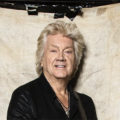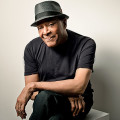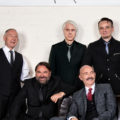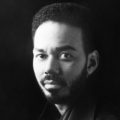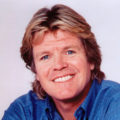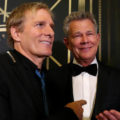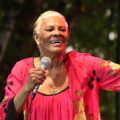Legendary jazz pianist Ramsey Lewis turns 85, starts “Saturday Salon” performance series
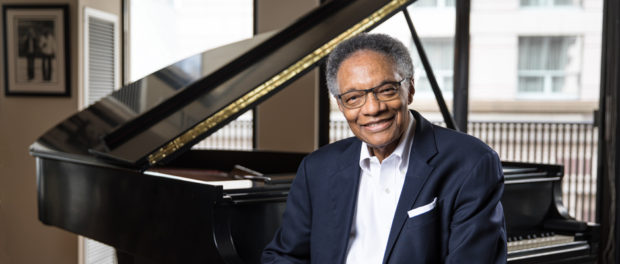 Photos provided by Todd Winters
Photos provided by Todd Winters
Prior to the pandemic, legendary pianist Ramsey Lewis already retired from the rigors of the road and was exploring the idea of performing from home right here in Chicago.
When concert venues closed, it made that vision seem practically prophetic and it also marked an official start to the monthly “Saturday Salon” series, which streams next on Saturday, July 25 at 1PM Central Time to all Stageit ticket holders.
Chicago Concert Reviews reached out to the triple Grammy winner shortly after turning 85 for the scoop on these virtual shows, recollections of starting out on a burgeoning Chess Records, giving Maurice White the blessing to leave his band and start Earth, Wind & Fire, plus the wisdom that’s come with so much experience.
Congratulations on your 85th birthday! What additional wisdom has come with the perspective of this milestone, both musically and when it comes to life in general?
Ramsey Lewis: 85 years old! I’m closer to a hundred than I am 50 (laughs). There’s always something to learn, so I do a lot of reading. I always have done a lot of reading though. It’s better to be a good listener than it is a talker. And mind your own business.
My musical wisdom [would be to] practice, practice, practice. Practice makes perfect. When I was very young, somebody said “you know how you get to Carnegie Hall?” “No, how do you get to Carnegie Hall?” “Practice, practice, practice.” And of course I’ve played Carnegie Hall several times now, but it’s something that [always] tells you you’ve gotta stay on top of your game. Who knows, when I’m 90-years-old, Carnegie Hall might call me and say “come on and do your 90th party here,” so you’ve gotta stay on your game.
Prior to the world winding down, you said farewell to touring anyway. Were you always planning to move to the streaming format or did the idea come about from these recent events?
Lewis: It just happened. Everything just happened. It was three, four years ago and we were at O’Hare. The skycap came out to the car, and got our bags, and my wife [Jan] says “pardon me sir, would you give my husband a wheelchair?” And I’m like “what?” “Well you know [it’s a very far walk to the] gate.” “Well, I’ve been to that gate before” and she looked back at me, and looked at the skycap, and said “get him a wheelchair.” From that moment on, I contemplated retiring, and now that I have, I’ve found other things to do, such as I continue to practice the piano.
 I was practicing piano not too long ago, and Russ Freeman, who used to play piano with Chet Baker, wrote a song for an album Chet Baker recorded called “Chet Baker & Strings,” and the song’s called “The Wind.” I used to play it oh, so many years ago, but it’s a beautiful song, and I was trying to make it come back, and finally it came back. I was playing it in its entirety and I didn’t know my wife was standing there with her phone pointed towards me. She said “oh, that’s nice” and it kind of startled me. And I said “oh, thanks.” I told her what it was all about and she sent it to Brett [Steele] my manager and Brent said “you know, you don’t have to leave home. If you want to play your own piano in your own house, we can fix it so that we can once again reach an audience and have fun with an audience.” There you go, so I said “let’s see how it’s gonna work” and we started doing it and now it’s something I look forward to! Once I do one, which is the last Saturday of every month at 1PM, I start preparing for the next one cause there’s thousands and thousands of songs and concepts I want to look through. I feel like a kid again. I’m good for another 60-70 years!
I was practicing piano not too long ago, and Russ Freeman, who used to play piano with Chet Baker, wrote a song for an album Chet Baker recorded called “Chet Baker & Strings,” and the song’s called “The Wind.” I used to play it oh, so many years ago, but it’s a beautiful song, and I was trying to make it come back, and finally it came back. I was playing it in its entirety and I didn’t know my wife was standing there with her phone pointed towards me. She said “oh, that’s nice” and it kind of startled me. And I said “oh, thanks.” I told her what it was all about and she sent it to Brett [Steele] my manager and Brent said “you know, you don’t have to leave home. If you want to play your own piano in your own house, we can fix it so that we can once again reach an audience and have fun with an audience.” There you go, so I said “let’s see how it’s gonna work” and we started doing it and now it’s something I look forward to! Once I do one, which is the last Saturday of every month at 1PM, I start preparing for the next one cause there’s thousands and thousands of songs and concepts I want to look through. I feel like a kid again. I’m good for another 60-70 years!
Do you have anything specifically planned for your next installment?
Lewis: Yeah, but I can’t tell you because I have about 30 songs for July and I can only use 12. I haven’t gotten down to what the 12 songs are going to be and that’s part of the fun too [when it comes to] making these playlists. When we were playing with the group traveling, you only play in front of the same audience once or twice a year. You could pretty much use the same play list for several months before changing it because you’re not going to play in front of that audience for a long time. But when you’re doing what we’re doing once a month, there’s a large percentage of people tuning in that saw us last month and will hopefully stick with us now for several months, so it means I have to come up with new material and that’s fun. I have a whole set of drawers of music, music, music, and I have lists of songs that I’ve always wanted to play, or I did play, or whatever. Before I know it, the time has gone by and my wife is saying it’s time for our evening drink.
How did you arrive at the “Saturday Salon” title for this series?
Lewis: My wife. We needed a name and she just came up with it. I had nothing to do with it. I said “you know, that sort of feels good,” so we called my manager and he said “that’s it.” It’s what we’re all about.
A portion of the proceeds benefits The Jazz Foundation Of America. What made you choose that organization?
Lewis: It was a group think. My wife already, years ago, said “I want to do this.” I said “let’s do it.” So we had already been giving money to the Jazz Foundation, but then when this came up, we said “well, now we can really give them some appreciable dollars.” When you think of the jazz musicians that were playing the clubs locally, or even touring playing clubs or concert halls, they’re not as old as I am, therefore they didn’t have the opportunity to put away their pennies like I have. They need help, so here we go. That’s what music’s all about.
How are you gaining inspiration these days?
Lewis: The inspiration is the fact that after we did the first “Saturday Salon,” we got something from Japan. I said “really?” Also my wife said “this is all over the world!” I said “you’re right.” And we got something from London, so it’s inspiring because instead of playing for three, four or five thousand people at Carnegie Hall, or Orchestra Hall in Chicago, you’re playing for millions of people and all of Europe, Japan and South America. If you’re on the road, you could never play to those people in one show. It takes a whole year or more to play to those people, so when you’re playing for the world with one show, it’s very exciting.
 Being a Chicago website, it’s only natural to ask what role the city played in your evolution?
Being a Chicago website, it’s only natural to ask what role the city played in your evolution?
Lewis: Well, the city has been so supportive of me [dating back to] when we were a local group playing night clubs around the city. At one time, Chicago had many nightclubs: 10-15 on the north side, 15-20 on the south side and 5-10 on the west side, so it’s always been so supportive in that it allowed us to play the kind of music we wanted to play. Sometimes the critics were like “we don’t understand what you’re playing. There’s a classical influence in your music. There’s a gospel influence in your music.” They’re against that, but I never let that confuse me. Without Chicago, I don’t think I would’ve had the success in my career that I’ve had. Of course, fortunately, it’s a big city, and during that time, we had several places to play cause you didn’t have a national name to travel. Chicago was there and it continues to be there, except I don’t go to the clubs or concert halls to perform anymore.
Could you possibly share anything that stands out from your formative years at Chess Records?
Lewis: Chess Records, oh my goodness gracious alive. What stands out…I think the day they signed us cause it was during that period we were playing around Chicago. A DJ named Daddy-O Daylie came to hear us play at a little club and he said “you guys should make a record” and we looked at each other “oh, yeah, right, we should make a record. How do you do that?” But he came back and said, “okay, I’ve talked to Phil and Leonard Chess, and they want to check you guys out,” so he told us where to show up.
At that time, the Chess brothers hadn’t built the studio like they eventually did more than once. They were in the stationary business, but in the back they had a music room with a piano and drums, so we went there, we played for them and they decided that they would record us. It was wonderful because each new album that we recorded in those days sold a little more, a little more, a little more. They were happy and we were happy. We signed with them in the middle ‘50s and it was around the middle ‘60s that we had an album all put together. We were gonna record the songs live and we were looking for one more song, but couldn’t think of one. Somebody said “have you heard Dobie Gray’s “The In Crowd?” I had not, so we checked it out and it was a fun song, the meat and potatoes that was really going to sell the album. We got that all ready, and little did we know that song called “The In Crowd” was the song that sold the album and kicked our career into full gear. I mean, wow! We went from playing night clubs, to playing concert halls, to Carnegie Hall, Ravinia, Orchestra Hall, Hollywood Bowl and all the big places. “The In Crowd” was a major turning point in our lives.
How about working with Maurice White prior to him forming Earth, Wind & Fire?
Lewis: Maurice was with me three or four years. He was a quiet spoken, easy going guy [who] never talked any louder than a whisper. After three or four years Maurice said “well man, I think I’m going to form my own group.” I said “oh great, Maurice. Are you going to do a trio or a quartet? Are you gonna play some jazz?” He says “no, well, we’re gonna play some jazz too.” I said “too?” He said “yeah, but we’re going add rock n’ roll, R&B, and we’re going to have horns, and we’re going to dance in uniforms.” I told him “you should take a couple of Aspirin and lay down awhile Maurice.”
 Long story short he did leave and I said “the best of luck to you. Stay in touch.” A year or two went by, and I was in the studio here in Chicago, and he gave me a call. They had just sold out Madison Square Garden. He says “what are you doing?” “I’m in the studio. I’m gonna record another album.” He said “I’ve got this song and I think it could be bigger than “The In Crowd.” I said “gimme a break, bigger than ‘The In Crowd?’” He said “yeah, if you want, on our way back to the west coast, we’ll stop in Chicago and record this song with you since you’re in the studio anyway.” I said “good idea, let’s do that.”
Long story short he did leave and I said “the best of luck to you. Stay in touch.” A year or two went by, and I was in the studio here in Chicago, and he gave me a call. They had just sold out Madison Square Garden. He says “what are you doing?” “I’m in the studio. I’m gonna record another album.” He said “I’ve got this song and I think it could be bigger than “The In Crowd.” I said “gimme a break, bigger than ‘The In Crowd?’” He said “yeah, if you want, on our way back to the west coast, we’ll stop in Chicago and record this song with you since you’re in the studio anyway.” I said “good idea, let’s do that.”
So Maurice, Philip [Bailey], Ralph [Johnson] and a couple of the guys [and I] must have spent three days on this one song [“Hot Dawgit”]. He finally got it the way he wanted. “That’s a hit record,” so we started packing up. [Then] he said “oh wait, wait, wait, there’s this melody that’s been in my head and it’s only 16 bars. It’s not a long song and we’ve gotta have a lot of soloing…sort of an R&B, bossa nova beat under the melody. “We’ll have [saxophonist] Don Myrick play a solo, then Ramsey, you play a solo, then Don will play another short solo, then you’ll play a solo and I’ll kick it out.” We spent maybe half a day or less on “Sun Goddess,” [but] we put the first song out, which was supposed to have been a huge hit. Radio played it for about two or three weeks and that was the end of that, but the album was selling. “Why is the album selling?” “Well, people are coming and asking for the album with ‘Sun Goddess’ on it!” So I love telling that story because Maurice really figured that the first song was going to be the smash, but it was the song that was the so-called “album song” that turned out to be the big record.
But Maurice, God bless him. He’s passed on now, but even until the day he died, he was soft-spoken in the dressing room, [then] when he got on the stage, it was like somebody turned the switch, and he got all electrified, and energized, and dancing, and singing, and jumping. He was one of those unusual persons and it’s wonderful that I can call him my friend. I do miss him.
How does being referred to as a true jazz legend sit with you?
Lewis: They can call me anything they want to call me just as long as they don’t call me bad names (laughs). People hear you through their experience, so there are those people who call me a jazz legend, especially now that we started recording I think we were in our 20s or early 30s. Anyway, it was a long time ago, so people want to say “legend.” If that makes them feel good, then great, but my ego does not need the stroke. Just give me a nice Steinway that’s nicely tuned and I’m in heaven!
For additional information on Ramsey Lewis, visit RamseyLewis.com.

